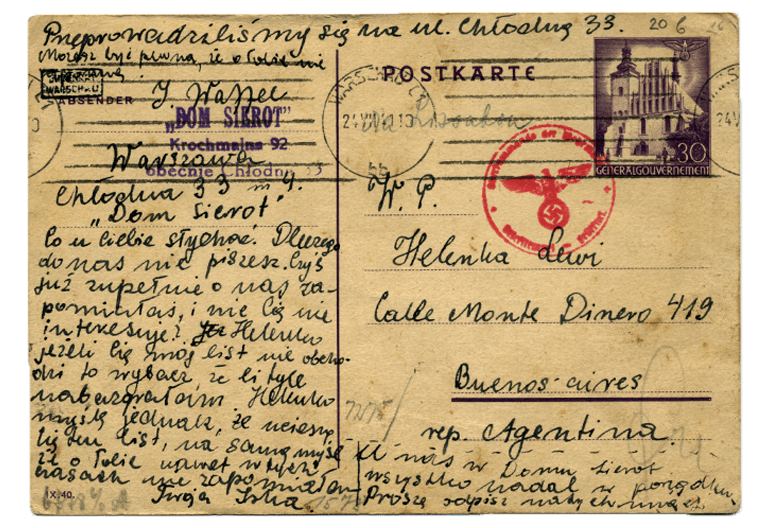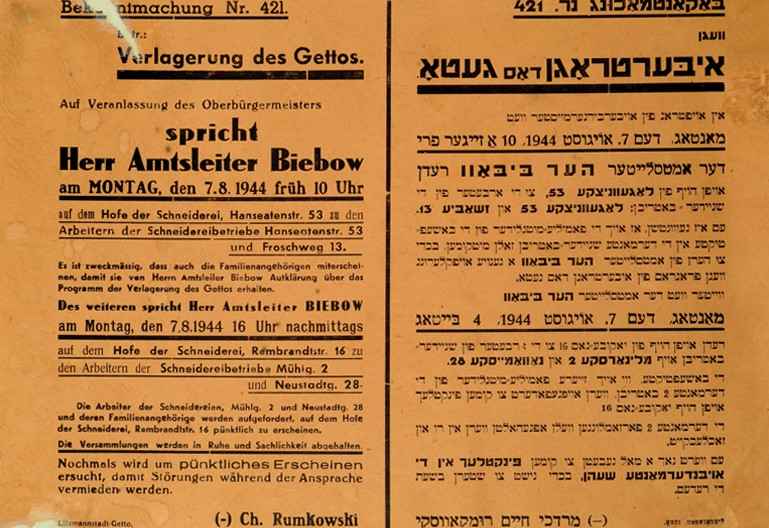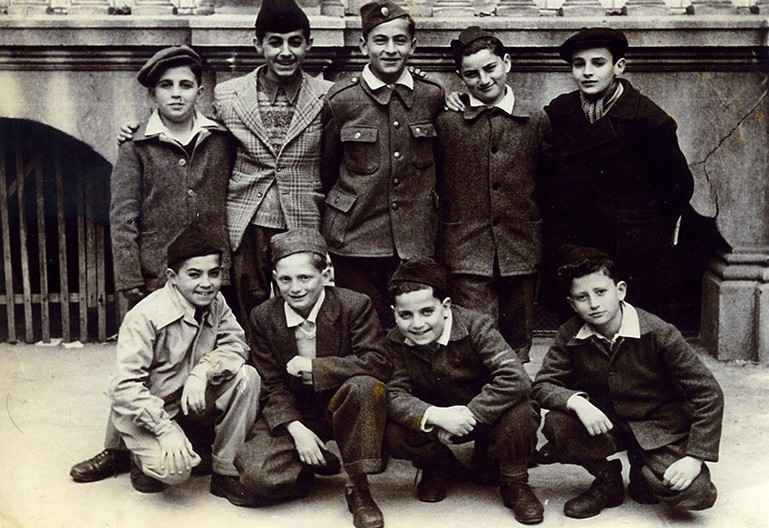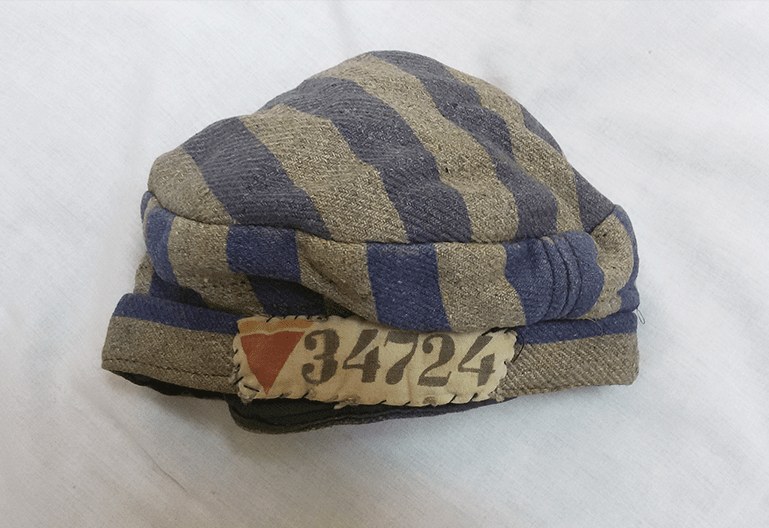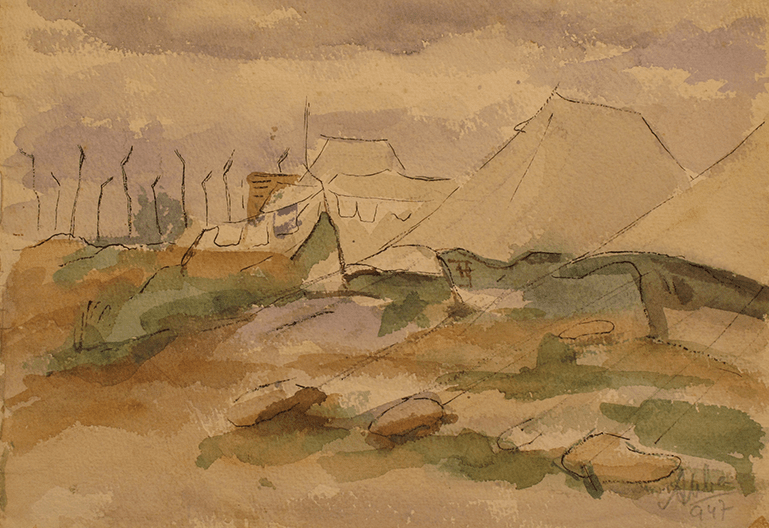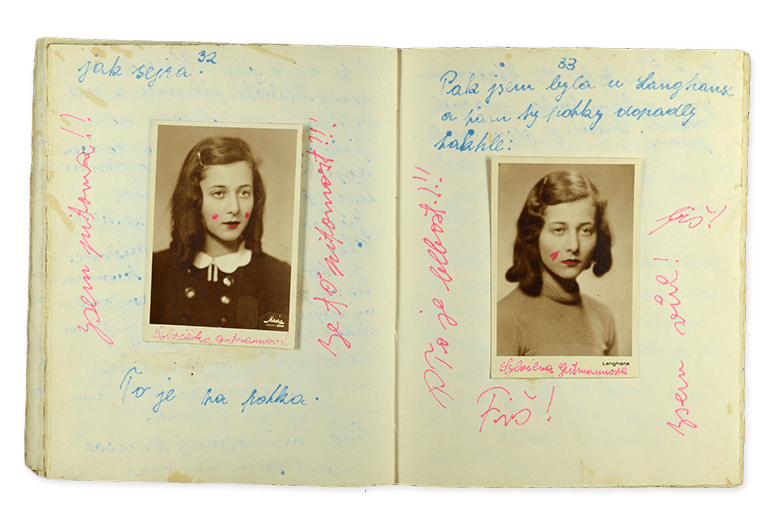Ghetto Fighters House Archive
Opening hours
Sunday through Thursday from 9:00-16:00
Contact us
04-9958032, 04-9958031, 04-9958027, 04-9958025
The Ghetto Fighters' House Archives were established along with the founding of Kibbutz Lohamei Haghetaot (Kibbutz of the Ghetto Fighters’). Despite the difficulties, the kibbutz members began collecting official and personal documents and photographs to document the Holocaust period and the communities that were destroyed. The work of collecting and sorting was viewed by the kibbutz members as carrying out the Last Will and Testament of those who perished, and a direct continuation of documentation work done in the ghettos.
The GFH Archives hold various kinds of materials, among them: letters, personal official documents, diaries, testimonies (written, audiotaped, and videotaped), films, photographs, an art collection, and an artifacts collection. The Archives deal with the documentation of three main periods in the history of the Jewish People: between the two World Wars – youth movements, religious life, community life and culture; the fate of the Jewish people during WWII – in camps and ghettos, physical and spiritual Jewish resistance; and the Holocaust survivor community in postwar Europe.
The GFH Archives maintain a data base accessible to the public. At present, the Archives are in the midst of a digitization project, working to make the holdings available via the Internet, catalogues and academic conferences. Many of the items are already available in the online archives accessed through the GFH website. Among the holdings are unique collections, including of the poet and playwright Itzhak Katzenelson; renowned educator Janusz Korczak; the Lodz ghetto; the “Zionist Coordination” for the discovery and recovery of Jewish children in postwar Poland who had been placed with non-Jews in wartime; Adolf-Avraham Berman’s collection on underground activity in Warsaw after the ghetto’s liquidation; stage director Jonas Turkow’s collection on theatre and culture in the Warsaw ghetto; the Zionist pioneering organization HeHalutz; the collection of children’s testimonies compiled by Benjamin Tene, an emissary of the HaShomer HaTzair movement in postwar DP camps; Yisrael Kaplan’s collected testimonies of Holocaust survivors from Lithuania; a collection of personal materials on Dutch Jewry; photos from the British internment camps in Cyprus for clandestine Jewish immigrants to Mandate Palestine; the Art Collection; the Artifacts Collection, and more.
Thanks to the generous donation made by the Association of Jews from Mlawa in Israel, the Archives have set up a researchers’ room, in memory of the Jewish community of Mlawa, Poland. The renovation and refurbishment of the room were made possible with the aid of the Claims Conference (Conference on Jewish Material Claims against Germany). The room’s computers are outfitted with a search program enabling direct access to all the archives collections that have been digitized and catalogued.
The Archives are a resource for the GFH Museum’s educational programs and its exhibitions. The “Yizkor” Hall exhibits artifacts from the GFH collection and artworks from the Art Collection. This exhibition is about memory and coping with it, commemorating the Jewish communities that were destroyed and the people who built and lived in them, enabling exposure to these two important collections of the Archives’ holdings.
Ghetto Fighters' House Museum Archive
The Ghetto Fighters' House archive continues its collection of archival materials: artifacts, photographs and documents from the years preceding World War II, from the war period, as well as from the first years after the liberation.



